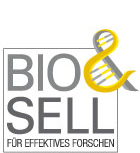The theoretical part includes:
- Aseptic techniques and contaminations
- Routine methods in cell culture
- Ingredients of culture media
- Cell lines and primary cells
- Cell counting and viability testing
- Cell banking
The practical part includes:
- Sterile working techniques
- Trypsinization, freezing, and thawing of cells
- Medium exchange for adherent and suspension cells
- Isolation of primary human endothelial cells
Target Group
Technical and scientific staff members with no previous cell culture experience or little cell culture experience.
Teacher
Associate professor Dr. Rüdiger Arnold teaches at the University of Heidelberg as a lecturer in several life science education programs. Dr. Arnold studied biology in Giessen and worked as a postdoctoral fellow at the Max - Planck - Institute of Physiology and Clinical Research in Bad Nauheim. Afterwards he joined the German Cancer Research Center and habilitated at the medical faculty of the Ruprecht-Karls - University of Heidelberg in immunology where he worked in the area of activation, differentiation, and apoptosis in leukocytes and lymphoma. Between 2011 and 2015 he headed the student research laboratory of the Heidelberg Life - Science Lab at the German Cancer Research Center.This course will provide basic knowledge and build upon your existing expertise, so that your daily cell culture work becomes safer and more efficient. Beginners to cell culture often get by with only a basic and limited knowledge acquired from copying a colleague. High standards required for reproducibility and accuracy are frequently missing. During this course, you will have sufficient time to acquire practical experience and in addition, we will introduce you to practical standards, documentation and cell banking.

